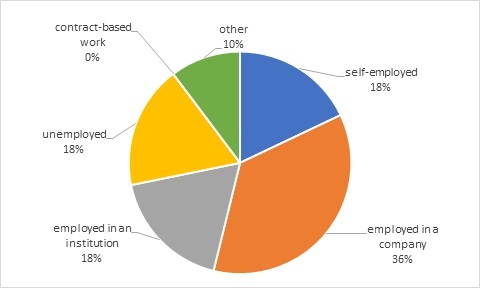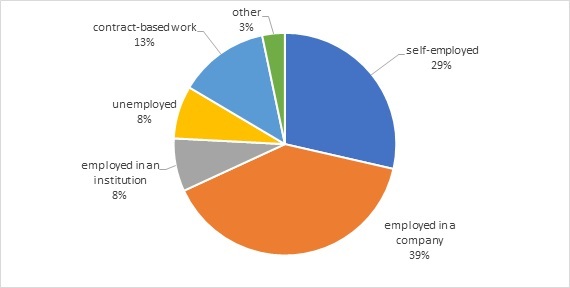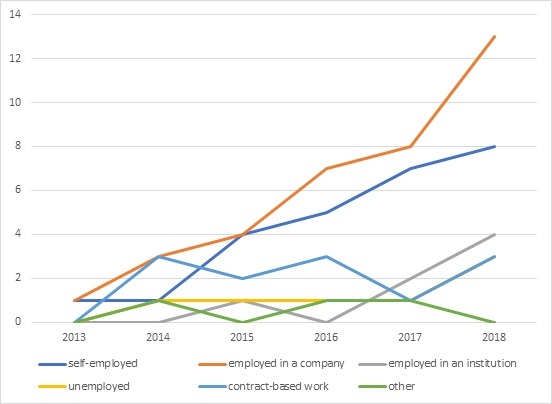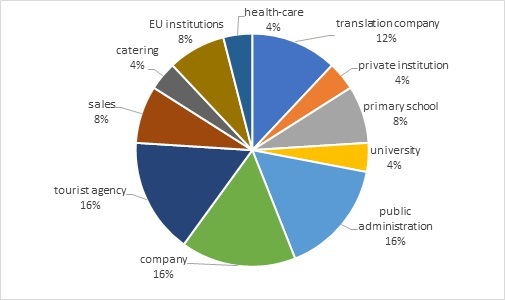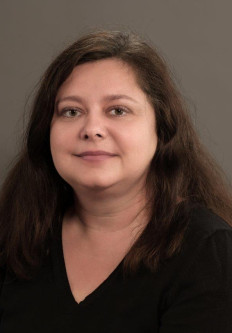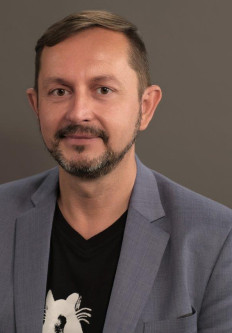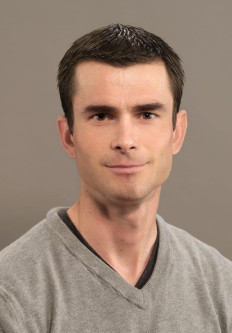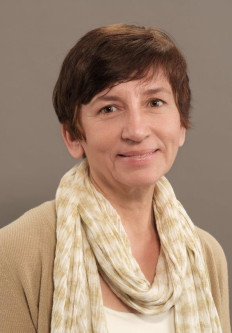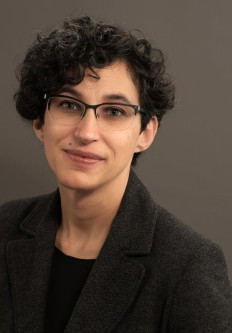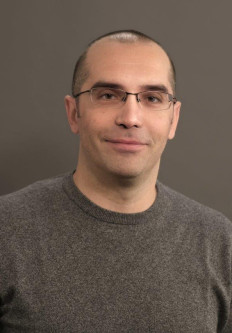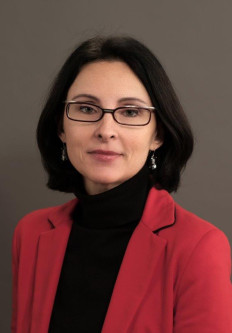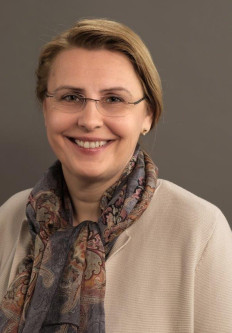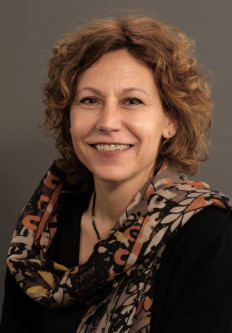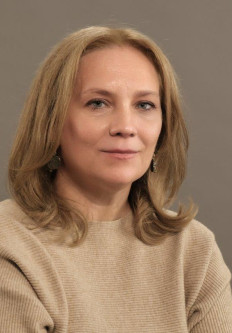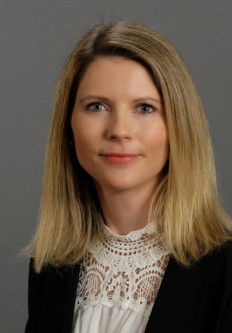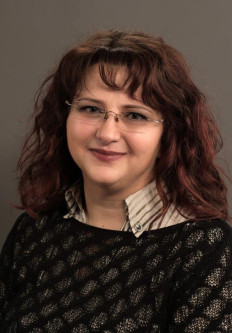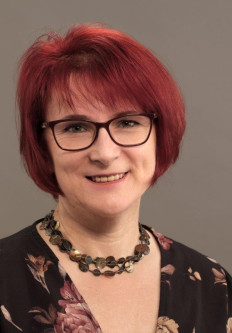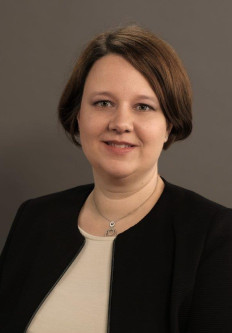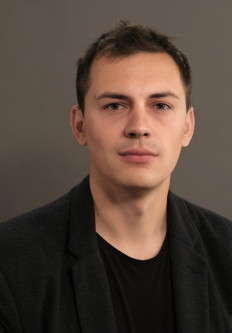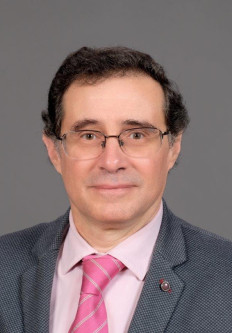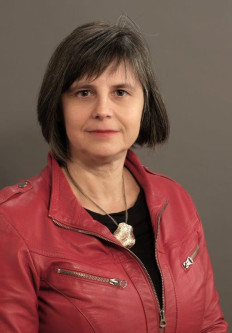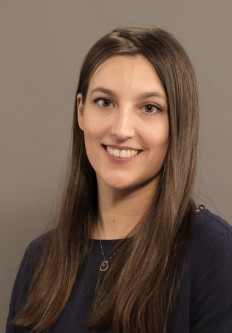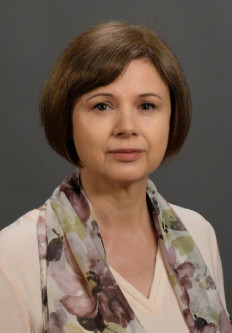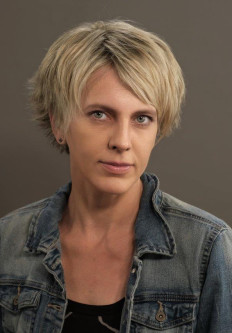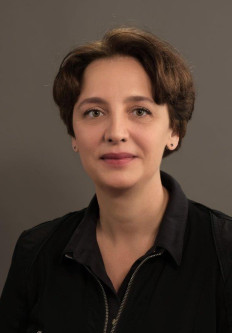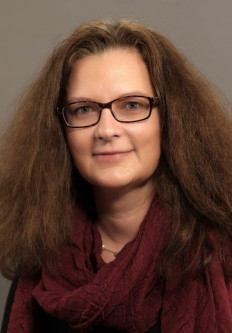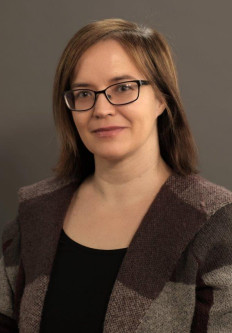
Upon the completion of the programme the graduates will be able to supplement their basic linguistic and cultural competences with translation skills and knowledge in translation studies. Translators will thus be able to prepare written, verbal, or multimedia texts from a written, verbal, or multimedia template that fulfills the defined goal in the target language (Slovene, English and French) or culture. Holders of master’s degrees will have a high level of competence in translating various types of texts from two foreign languages in various areas such as economics, law, the natural sciences, the social sciences, electronic media, computer science, or texts for the arts and social sciences and literary texts. They will acquire the skills to edit and format texts for the needs of public and private institutions at both the national and international levels, will be trained for work with terminology and computer-aided translation, and they will also acquire the competence to edit various types of technical texts in line with the specific conventions of the target language. The master’s program will thus train translators in technical and literary translation, subtitling, localization, computer-aided translation, lexicography, and work with terminology.
The joint master’s degree in translation will train highly qualified translators that will be experts in establishing communication primarily among members of various cultures and languages. Successful completion of the program will enable translators to professionally meet current market demands and enable them to adapt to the future needs of the translation market. At the same time, the program will ensure a high level of competence in translation theory so that those holding a master’s degree will be able to form their own understanding of theoretical principles and assess them, apply them to their work, and identify and solve the problems that they will encounter in their work as professional translators. An academic program designed in this way will educate highly trained holders of master’s degrees and prepare them for further study at the doctoral level.
General competences
According to the Dublin Descriptors the Master’s degree will be awarded to students who
- have demonstrated knowledge and understanding that is founded upon and consolidates that typically associated with Bachelor’s level programmes, and which provides a basis or opportunity for originality in developing and/or applying ideas, often within a research context;
- can apply their knowledge and understanding, and problem solving abilities in new or unfamiliar environments within broader (or multidisciplinary) contexts related to their field of study;
- have the ability to integrate knowledge and handle complexity, and formulate judgements with incomplete or limited information, but which include reflecting on social and ethical responsibilities linked to the application of their knowledge and judgements;
- can communicate their conclusions, and the knowledge and rationale underpinning these, to specialist and non-specialist audiences clearly and unambiguously;
- to use modern information and communication technology;
- to operate independently in the profession and work in teams;
- have the learning skills to allow them to continue to study in a manner that may be largely self-directed or autonomous.
Translation-specific competences
The competences proposed follow the document written by a group of expert at the European Commission working on the European Master’s in Translation. Various types of competences are interdependent. Thus, for example, the aptitude for taking reasoned decisions is horizontal; it applies equally to the provision of a translation service and to documentary research etc.
(1) The Master’s Programs are open to all students provided they possess the following formal requirements:
- Proof of a completed bachelor’s or diploma program in the field of Interlinguistic Mediation or Intercultural Communication;
- Proof of a completed bachelor’s or diploma program in any other field and the proof that the candidate fulfills all additional requirements that are specified by the home university (i.e. by the university at which the student registers for the Master's Program).
(2) A maximum of 10 students per University will be admitted per year. After the evaluation process this figure can change. Admission restrictions are permissible if a restriction is required by one of the partner universities. Since this is a joint program, such a restriction will be valid at both partner universities.
(3) For organizational reasons, students can only begin the Master’s Program Translation in the winter semester of the respective academic year.
(4) Admission to the Master's Programs is a two-step process:
(4.1) Students who wish to participate in the Master’s Program Translation have to provide the required documents and apply to the respective coordinator of the home university chosen by them for the selection process by the deadline announced. The coordinator will be responsible for the coordination of the degree and its academic supervision and will serve on the selection committee.
(a) The application deadline is the same at all partner universities and will be announced at all participating universities on the same day. The application deadline for the selection procedure is June 30th. The application deadline for enrollment is September 1st. The decision on whether a student can take part in the Master’s Program is made by the selection committee by September 15th.
(b) Required documents for those graduates of Interlinguistic Mediation (Slovene/German/English, University of Ljubljana) or Intercultural Communication (University of Graz) who want to register for the Master's Program Translation are:
Completed application form
Motivation letter
Diploma certificate/ degree certificate
Transcripts or Diploma Supplement
Required documents for the graduates of study programs of higher professional education (accredited between 1. 1. 1994 and 11. 6. 2004) and for the graduates of university degrees in any other field (before or after Bologna reform) who want to register for the Master's Program Translation are:
- Completed application form
- Motivation letter
- Diploma certificate/ degree certificate
- Transcripts or Diploma Supplement
- A passing grade in the exam checking the linguistic and cultural competencies in Slovene, German and English
(c) The selection committee decides on the ranking and admission of the applicants. The selection committee consists of the coordinators of the individual universities each with a second person of the faculty.
(d) In case a nominated student withdraws from his/her application, the next person moves up to take the free place.
(4.2.) Admission is granted according to the regular procedure of the respective university to which the student has applied. The university at which the student registers for the Master's Program is considered to be the home university. If enrolling at the University of Ljubljana, visit the Slovene version of the website and consult:
Office of Master's Studies
Filozofska fakulteta
Aškerčeva 2, 1000 Ljubljana, Slovenia
Tel.: +386 1 241 1043, +386 1 241 1042
Fax: +386 1 425 9337
The Academic Degrees awarded to graduates of this programme are:
Slovenia: Magister/Magistrica prevajanja (mag. prev.)
Austria: Master od Arts (MA)
Graduates typically work for international institutions and organisations and multinational companies in the following areas:
- Law and administration
- Business and industry
- Cultural and knowledge management
- Media and literature
The Joint Masters Degree Programme also provides students with the knowledge of theoretical concepts and paradigms as well as research skills and methods to allow them to study for a PhD.
Employability Questionnaire results in 2018
(generations from 1 October 2013 – 1 November 2018)
Using annual online surveys the department follows up on two main aspects of students' employability, i.e., employability as a whole and identification of different fields in which our graduates find employment.
38 out of 98 students (i.e., 39%) who graduated from the MA programme Translation at the University of Ljubljana in the period between 1 October 2013 and 1 November 2018 took part in the departmental online surveys. Overall data shows that only 18% of all our graduates are unable to find employment within six months of graduation. Within 12 months of graduation, unemployment drops to 8% as shown in the charts below.
With the surveying process we also wish to maintain in which fields our graduates most typically find employment. They mostly find work in different companies (39%), 8% are employed in institutions and 29% are self-employed (see the chart below, 'Other' includes internships abroad, maternity leaves etc.). It is particularly encouraging that 70% of graduates who completed the survey do translation-related work.
6 months after graduation
Employability in November 2018
Type of Employment – Employability Trend
Employment by major industry sector (Percentage of graduates without self-employed)
Almost half of the courses in the curriculum (46% or 55 ECTS points) are elective with restrictive elective courses covering 43 ECTS points and free elective courses 12 ECTS points. Students can choose from translation seminars focussing on translation of techical and scientific texts, texts for the arts and social sciences, promotional material, legal texts, political texts, literary texts or on subtitling, terminology, lexicology, semantics, contrastive lexicology etc.
Registration or tuition fees are charged by the respective home universities.
Students in their mobility phase are regarded as regular students and will be granted normal access to the facilities of the host university.
Local fees and health insurance provisions may vary per institution.
In order to complete the programme students have to:
- assemble 120 ECTS credits
- fulfil all the requirements defined by the curricula and course descriptions;
- pass the end-of-course examination;
- write an MA thesis and defend it before a board of examiners (see below for details).
(1) Students have to spend at least one semester abroad (i.e. 30 ECTS credits) at the partner university.
(2) The obligatory semester abroad is the third semester (Translation) and the second or the third semester (Interpreting).
(3) The individual Offices of International Relations at the universities (or their institutional equivalents) support the visiting students by providing them with information on accommodation, the infrastructure, language courses, and visa regulations etc.
(4) Registration or tuition fees are charged by the respective home universities.
(5) Students in their mobility phase are regarded as regular students and will be granted normal access to the facilities of the host university.
(6) Local fees and health insurance provisions may vary per institution.
See also Joint Master‘s Degree Programme in Translation (Graz)
Assessment may take the form of end-of-term examinations and/or continuous assessment.
The international grading system is used for the assessment of the work submitted by the students.
| ECTS Grade | Description (English) | Description (Slovene) | Equivalent Graz | Equivalent Ljubljana |
|---|---|---|---|---|
| A | exceptional knowledge without or with negligible faults | izjemno znanje brez ali z zanemarljivimi napakami | (1) sehr gut | 10 |
| B | very good knowledge with some minor faults | zelo dobro znanje z manjšimi napakami | (2) gut | 9 |
| C | good knowledge with certain faults | dobro znanje s posameznimi pomanjkljivostmi | (3) befriedigend | 8 |
| D | solid knowledge but with several faults | dobro znanje z več pomanjkljivostmi | (4) genügend | 7 |
| E | knowledge only meets minimal criteria | znanje ustreza le minimalnim kriterijem | (4) genügend | 6 |
| F | knowledge does not meet minimal criteria | znanje ne ustreza minimalnim kriterijem | (5) nicht genügend | 5 |
- Study abroad without a »loss« of a semester at home university
- Automatic recognition of study periods and examinations at the partner university abroad
- Closer contact with the source and target cultures and languages which constitutes the basis for a successful translation career
- A choice of the most interesting and high-quality courses at all three institutions
- Quality assurance with common admission regulations and final defenses of MA theses
- Mutual recognition of academic degrees and qualifications
- International employability of graduates
The Master’s thesis is worth 20 ECTS credits. The thesis reflects the student’s capacity for independent study and research and should between 25,000 and 35,000 words in length (written in German or English). A longer summary is required in Slovenian (between 2,500 and 3,000 words in length).
Students must choose the topic of their Master’s thesis in consultation with a supervisor at the end of the third semester. Students have the right to suggest the topic or choose from a number of suggestions made by the supervisor. In accordance with the regulations of the home university, the relevant authorities have to be informed about and approve the topic of the thesis and the name of the supervisor.
The thesis will be assessed by two readers, one of whom should be the supervisor and the other a faculty member of the partner university. The supervisor will prepare a written report and submit it to the second reader for approval and/or comments in order to reach a common and unanimous grade.
The thesis will be assessed by two readers, one of whom should be the supervisor and the other a faculty member of the partner university. The supervisor will prepare a written report and submit it to the second reader for approval and/or comments in order to reach a common and unanimous grade.
Viva Voce (Joint Degree): The oral examination is taken before a board of examiners. The board will include examiners from both universities if possible. The exam is open to public. The oral examination is worth 2 ECTS credits.
To complete the master's programme in translation, students must complete all obligations defined by the programme requirements and the syllabuses for subjects required for their chosen language combination totalling 120 CR. Students must prepare and defend a master’s dissertation as part of a master’s seminar and take a master’s-level exam as defined by the programme requirements.
More information here.
University of Ljubljana (Slovenia)
Faculty of Arts
Department of Translation Studies
Tanja ŽIGON
Aškerčeva 2, 1000 Ljubljana
Tel: +386 1 2411500
Fax: +386 1 2411501
tanja.zigon@ff.uni-lj.si
Karl-Franzens-Universität Graz (Avstrija)
Institut für Theoretische und Angewandte Translationswissenschaft
http://www.uni-graz.at/itat
Ursula STACHL-PEIER
Merangasse 70/I
A-8010 Graz, Avstrija
Tel: +43 316 380-2666
Fax: + 43 316 380 9785
ursula.stachl-peier@uni-graz.at
Karin ALMASY
karin.almasy@uni-graz.at
Enrolement information
University of Ljubljana
Faculty of Arts
Referat za magistrski študij (druga stopnja)
Aškerčeva 2, 1000 Ljubljana
Tel.: +386 1 2411043, +386 1 241 1042
Fax: +386 1 425 9337
magistrski.studij@ff.uni-lj.si
Karl-Franzens-Universität Graz
Studien- und Prüfungsabteilung
Universitätsplatz 3
A-8010 Graz
Tel.: +43 316 380 1163
Fax: +43 316 380 9106
studienabteilung@uni-graz.at
www.uni-graz.at/studium/
